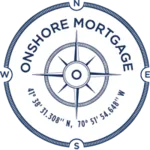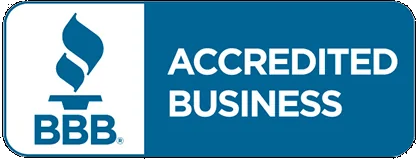

Understanding Capital Gains Tax When Selling Your Home
Selling your home? See how capital gains tax works, IRS exclusions up to $250K–$500K, and ways to reduce taxes with improvements or a 1031 exchange.
If you’re planning on selling your home, one of the most important financial factors to consider is capital gains tax. Many homeowners don’t realize that they might owe taxes on the profit from their home sale. However, certain tax exclusions could allow you to keep more of your earnings. Let’s break down how capital gains tax works and how you might be able to minimize your tax liability.
What Is Capital Gains Tax?
Capital gains tax is a tax on the profit (or "gain") from the sale of an asset, including real estate. The gain is calculated as the difference between your home’s selling price and its adjusted cost basis.
- Cost Basis – This includes the original purchase price of the home plus any significant improvements made over the years (e.g., renovations, new additions, or major repairs.
- Selling Price – The final amount received from the sale, minus selling expenses like agent commissions and closing costs.
- Capital Gain – The selling price minus the adjusted cost basis. This is the amount subject to potential taxation.
The Capital Gains Tax Exclusion
The good news is that many homeowners qualify for a tax exclusion that reduces or eliminates their capital gains tax burden. Under the IRS Section 121 Exclusion, homeowners can exclude up to:
$250,000 of gain if filing as a single individual
$500,000 of gain if filing jointly as a married couple
What are the Qualifications for the Exclusion?
To qualify for this capital gains tax exclusion, you must meet the following conditions:
- Ownership Test – You must have owned the home for at least two of the last five years before the sale.
- Use Test – You must have lived in the home as your primary residence for at least two of the last five years.
- No Recent Exclusion – You haven’t used the capital gains exclusion on another home sale within the past two years.
If you meet these criteria, your profit (up to the exclusion limit) is completely tax-free!
When Do You Owe Capital Gains Tax?
If your capital gain exceeds the exclusion amount, the excess portion will be subject to capital gains tax. The tax rate depends on how long you owned the property and your income level:
- Short-term capital gains (if owned for less than a year) are taxed as ordinary income.
- Long-term capital gains (if owned for more than a year) are taxed at 0%, 15%, or 20%, depending on your income tax bracket.
Additionally, if you converted a rental property into a primary residence, used part of the home for business, or sold under unique circumstances, different tax rules may apply.
How to Reduce or Avoid Capital Gains Tax
Even if your gain exceeds the exclusion, there are strategies to reduce your tax burden:
- Track Home Improvements – Keep records of major renovations and upgrades, as they can increase your cost basis and reduce your taxable gain.
- Sell in a Lower-Income Year – If possible, sell during a year when your income is lower to qualify for a lower capital gains tax rate.
- Consider a 1031 Exchange – If you’re selling an investment property, a 1031 exchange allows you to defer taxes by reinvesting proceeds into another property.
Understanding capital gains tax can help you plan smarter when selling your home. If your profit falls under the IRS exclusion limits, you may owe nothing in taxes. However, if your gain exceeds the limit, knowing your options can help you reduce your tax burden.
Since tax laws can be complex and vary based on individual circumstances, always consult a Certified Public Accountant (CPA) or a Real Estate Attorney for professional legal and tax advice before making any financial decisions.
If you’re considering selling your home and want to explore your mortgage or financial options, Onshore Mortgage is here to help. Contact us today for expert guidance on your homeownership journey!

Latest Posts


Grant R. Menard MLO NMLS# 17308
CLICK HERE
Onshore Mortgage

Massachusetts Division of Banks NMLS#MB1995582
CLICK HERE
The information contained in this site has been prepared by an independent third party and is distributed for educational purposes only. This is designed to give helpful tips on the mortgage process and is not intended to give legal advice.
Information is considered reliable but not guaranteed. This is not a pre-qualification, pre-approval, loan approval or commitment to lend. We arrange but do not make loans.
© 2020 Onshore Mortgage, LLC. all rights reserved.


.webp)
